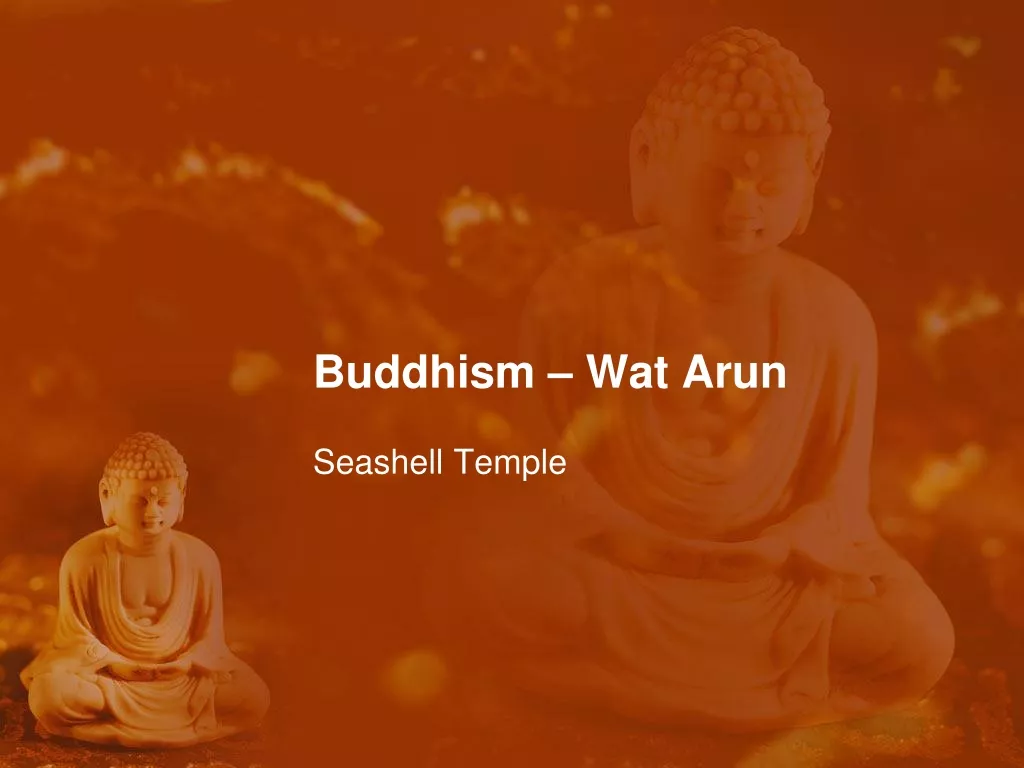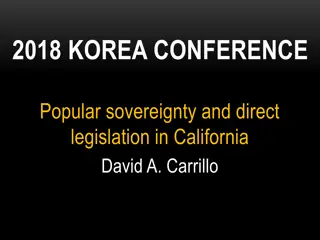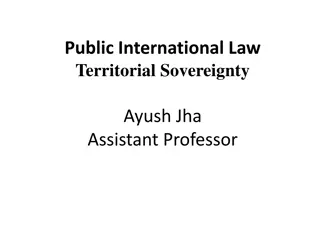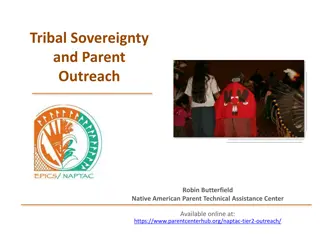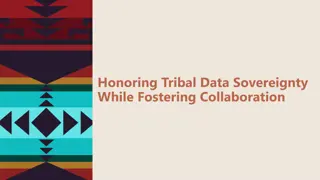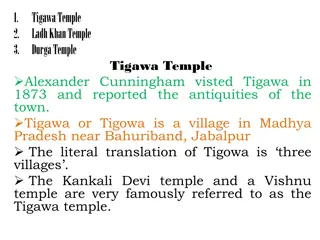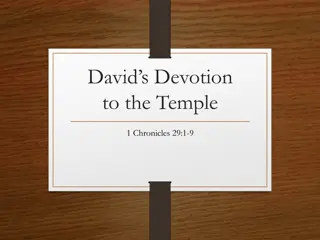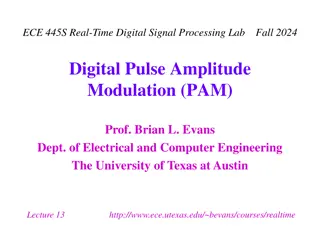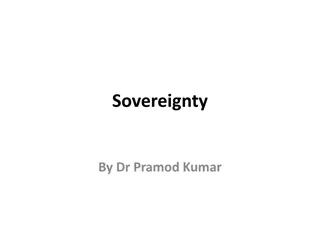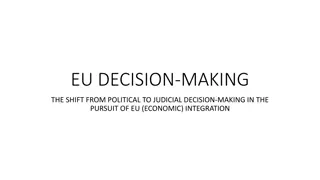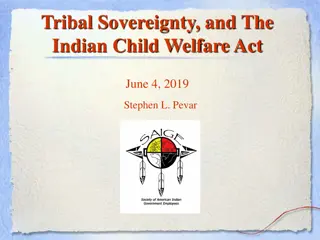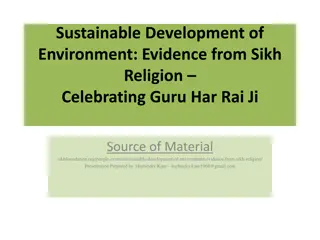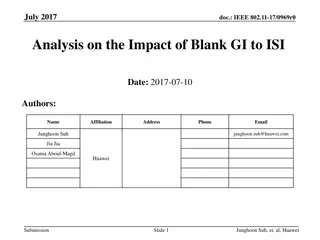The Golden Temple: A Symbol of Sikh Sovereignty and Universal Culture
Mutual contacts in Sikh history have left monuments of bigotry, yet the Golden Temple stands as a symbol of universal culture and a meeting ground for all. Grounded in Sikh doctrine, it represents a stance against absolutism and serves as the hub of the Sikh world, embodying the principles of respect, sovereignty, and peaceful persuasion.
Download Presentation

Please find below an Image/Link to download the presentation.
The content on the website is provided AS IS for your information and personal use only. It may not be sold, licensed, or shared on other websites without obtaining consent from the author.If you encounter any issues during the download, it is possible that the publisher has removed the file from their server.
You are allowed to download the files provided on this website for personal or commercial use, subject to the condition that they are used lawfully. All files are the property of their respective owners.
The content on the website is provided AS IS for your information and personal use only. It may not be sold, licensed, or shared on other websites without obtaining consent from the author.
E N D
Presentation Transcript
Ground Rules 1. Punctual attendance 2. The whole book/article of the month must be read 3. Come with an open mind 4. Share your learning and listen to others 5. Keep the discussion relevant 6. Respect each others confidentiality
The Golden Temple: It's theopolitical status by Sirdar Kapur Singh
Mutual contacts have left monuments of bigotry and misunderstanding Still mark the Indian scene Sikh prophets desired to level barriers and establish common spiritual ground The Golden Temple was intended to be a profound symbol of a universal culture A meeting ground - A world-culture and world religion Muslim divine lay the foundation stone Amritsar/Amrta/water as a symbol of the first manifestation
Whole of Sikh History is must be seen as an unfoldment of this Sikh attitude Sikh revolt against the Mughal State (Dharam Yudh Morcha) is also grounded in the same doctrinal conflict. Sikh doctrine of Double Sovereignty The main substance of this doctrine is that any sovereign state which includes Sikh population and groups as citizens must never make the paranoia pretensions of almighty absolutism entailing the concept of total power, entitled to rule over the bodies and minds of men, in utter exclusiveness. Any state which lays such claims qua the Sikhs, shall automatically forfeit its moral right to demand allegiance of the, Sikhs and there is thus an internal antagonism between such a state and the collective community of the Sikhs, represented by the order of the Khalsa, and in this deadly duel the State shall never emerge out as finally victorious, for self-destruction is the fruit of the seed of nonlimitation, and the status and the prerogatives and the Khalsa are imprescriptible.
(1) they must he approached and dealt with at State level as a collective group and entity (2) they must be governed impersonally, that is, through the rule of law and not by arbitrary will, and this self-limitation must further be circumscribed by the immemorial customs, long-established traditions and the facts of the history of the Sikhs. The principles of the Sikhs metalegal constitution Consistent with the modern concept of the pluralistic State
We hereby place our impress of sovereignty upon both the worlds, the seen and the unseen. Collapse of Sikh political power in 1716 Black out till 1721 - when the Golden Temple became the centre of activities Prior to this centres were the Nanaks Never abdandoned two positions (despite occupation, destruction or being declared as When all means of peaceful persuasion fail, it is legitimate (for a man of religion) to move his hand to the hilt of the sword. outlaws): (1) the Golden Temple and its adjuncts are the hub of the Sikh world, not as a matter of concession by any worldly power, but as the inherent right of the Sikh people, sui generis and inalienable, and (2) there is no ultimate dichotomy in the true Sikh doctrine between this world and the next, the secular and the religious, the political and the spiritual.
no ordained priestly class...there can be no theocratic political state of the Sikhs in which the priests rule in the name of an invisible God. it is the holiest of the holies of the faith it is the historical centre of the epiphany of Sikhism Theo-political status It is not precisely the political capital of the Sikhs retains its theo-political status, which may be suppressed by political power, compromised by individuals or questioned by politicians, but which remains and never can be extinguished, for, it is sui generis and inalienable, and imprescriptible. Many misunderstandings continuously arise concerning the use of the Golden Temple with its surrounding complex, for Political purposes ? Never amongst Sikhs
A natural water reservoir for thousands of years Amarkunda Well revered spot for the theomatic rish s of the ved s ? Vedic hymns revealed to aryans just as those of SGGS Prehistoric Antiquity of Amritsar Yogi at Santokhsar Buddhist monk-communities Founder of the Lamest Buddhism in Tibet took birth from a lotus floating on the sacred lake Surmises lack palpable root and material evidence
Grass-eaters attack Nadir Shah - interesting conversation between Nadir Shah and Zakariya Khan Sikhs Avenge Profanity of the Golden Temple Invaders knew of it's theo-political status Autonomous political status Massa Ranghar Lakhpatrai Nadir Shah Combined forces of the Marathas and the Sikhs - drive of Afghan invaders Raghunath Rao and Malhar Rao Holkar Even during the Sikh Raj retained its theo-political autonomy and the writ of the Maharaja Ranilt Singh did not run within its precincts.
Allies of the Khalsa Government-appointed Sikh manager Sought to use the Golden Temple in approval of the action of General Dyer Gave birth to the SGPC (1927) Foreign Influence Indian Government's repeated attempts to obtain control of the Golden Temple Sikhs, in some way, transgress by employing the Golden Temple and its precincts for the purpose, for which they have always been employed, and for which they were intended from the very beginning A religious life must be lived and practised in the socio-political context


